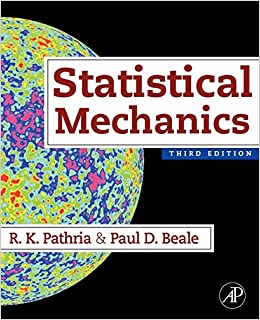(a) The volume of a sample of helium gas is increased by withdrawing the piston of the...
Question:
(a) The volume of a sample of helium gas is increased by withdrawing the piston of the containing cylinder. The final pressure \(P_{f}\) is found to be equal to the initial pressure \(P_{i}\) times \(\left(V_{i} / V_{f}ight)^{1.2}, V_{i}\) and \(V_{f}\) being the initial and final volumes. Assuming that the product \(P V\) is always equal to \(\frac{2}{3} U\), will (i) the energy and (ii) the entropy of the gas increase, remain constant, or decrease during the process?
(b) If the process were reversible, how much work would be done and how much heat would be added in doubling the volume of the gas? Take \(P_{i}=1 \mathrm{~atm}\) and \(V_{i}=1 \mathrm{~m}^{3}\).
Fantastic news! We've Found the answer you've been seeking!
Step by Step Answer:
Related Book For 

Question Posted:





